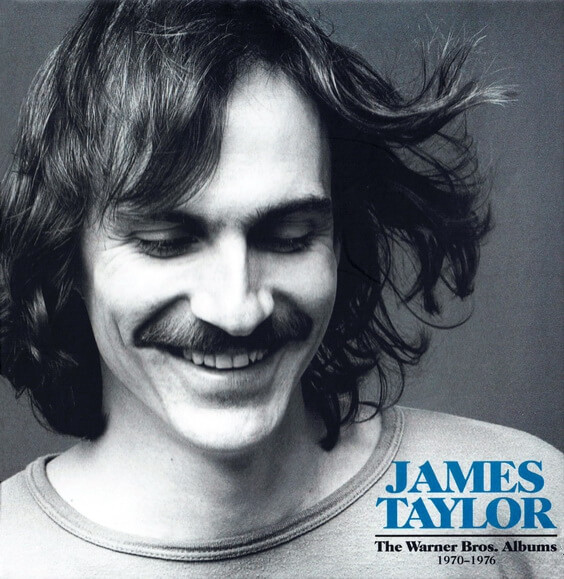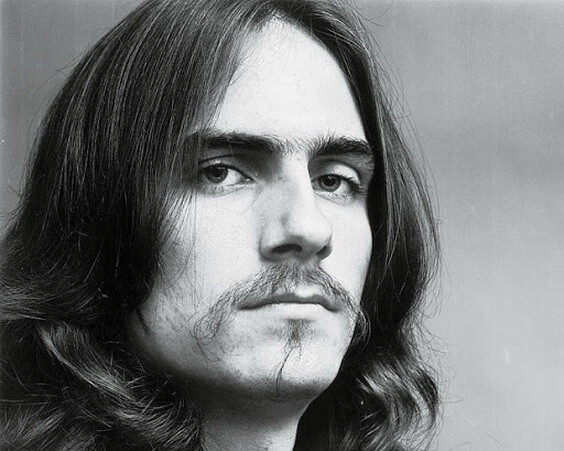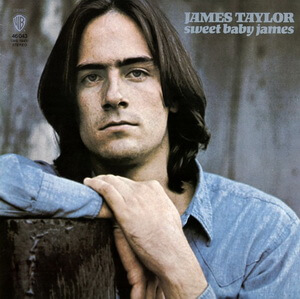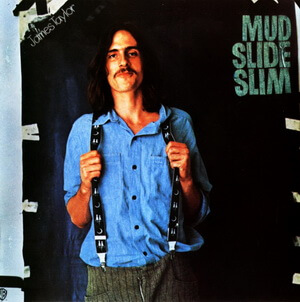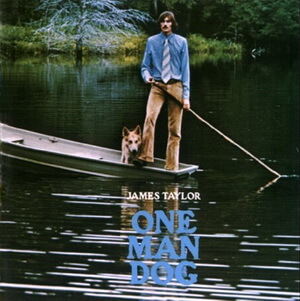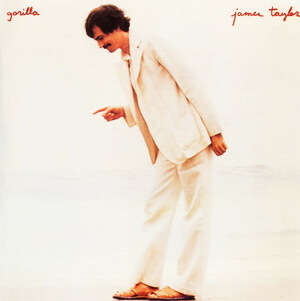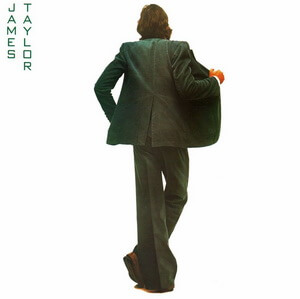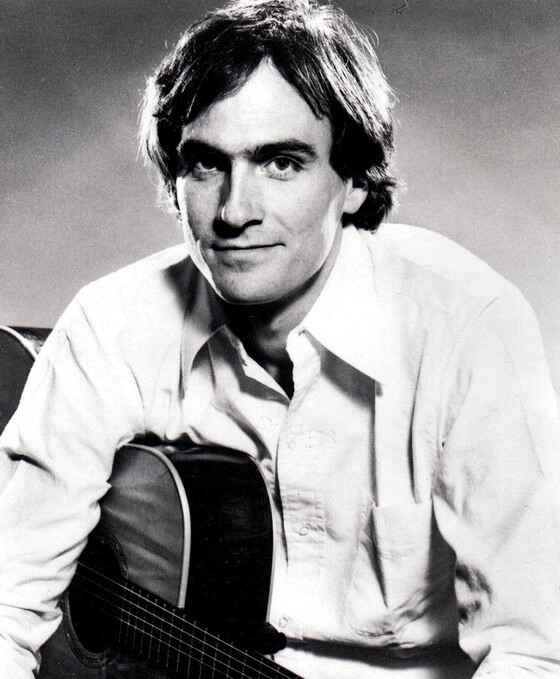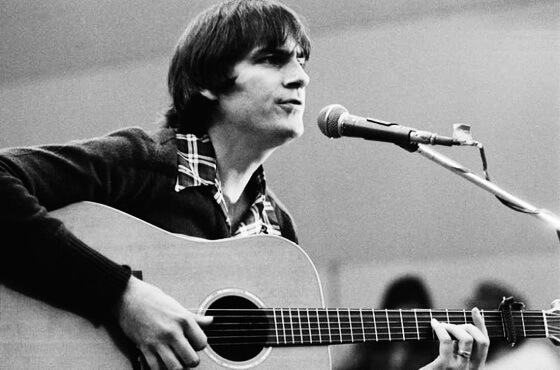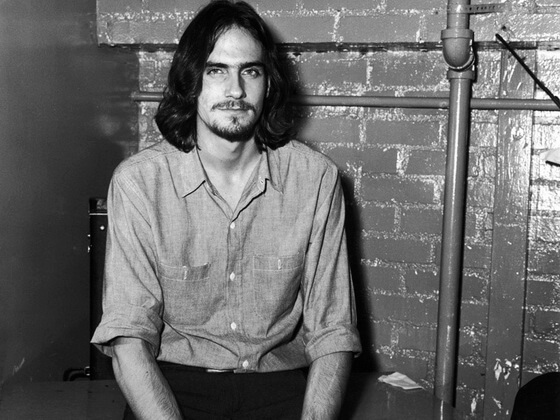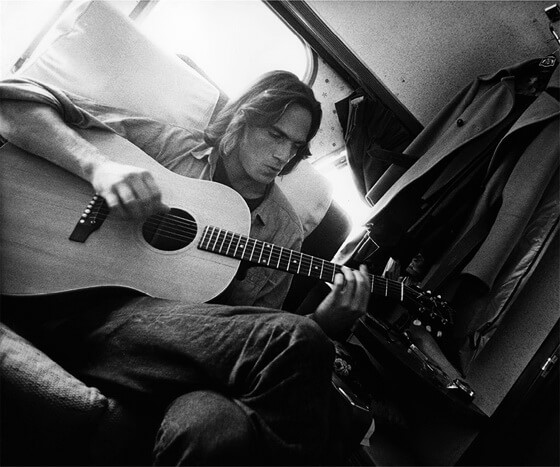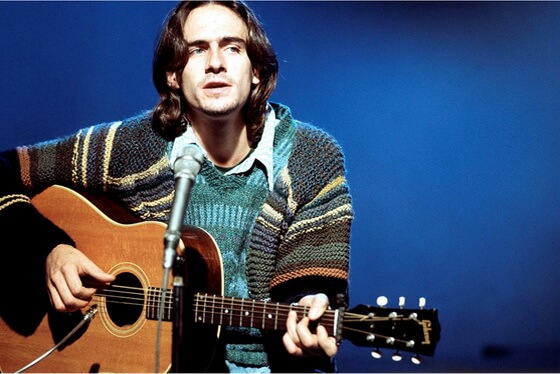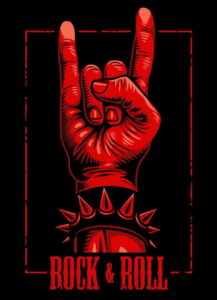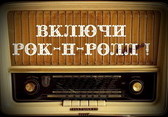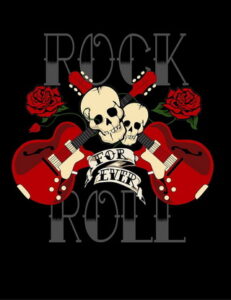Исполнитель: James Taylor
Откуда: USA
Альбом: The Warner Bros. Albums 1970-1976 (6CD Box Set)
Год выхода: 2019
Жанр: Folk/Pop Rock
Формат: MP3 CBR 320
Размер архива: 612 МB
When people use the term “singer/songwriter” (often modified by the word “sensitive”) in praise or in criticism, they’re thinking of James Taylor. In the early ’70s, when he appeared with his introspective songs, acoustic guitar, and calm, understated singing style, he mirrored a generation’s emotional exhaustion after tumultuous times. Just as Bing Crosby’s reassuring voice brought the country out of the Depression and through World War II, Taylor’s eased the transition from ’60s activism and its attendant frustrations into the less political, more inward-looking ’70s. He was rewarded with a series of hit albums and singles (surprisingly, many of the latter were covers of old songs rather than his own compositions), and he managed to survive his initial fame to achieve lasting popularity. He continued to tour successfully for decades, and, starting with his 1970 breakthrough Sweet Baby James, all but one of his regular album releases for the rest of the century went gold or platinum, while his 1976 Greatest Hits album achieved a diamond certification reflecting sales of more than ten million copies.
Taylor was the son of Dr. Isaac and Gertrude Taylor. His three brothers Alex (1947-1993), Livingston, and Hugh—and his sister Kate—all became musicians and recorded albums of their own. In 1951, Dr. Taylor was appointed dean of the medical school at the University of North Carolina at Chapel Hill, and the family moved from New England to the South. Taylor studied cello as a child, but first took up the guitar in 1960. In 1963, he began attending Milton Academy, a prep school in Massachusetts. That summer, he met fellow guitarist Danny “Kootch” Kortchmar while staying on Martha’s Vineyard, and the two formed a folk duo. Taylor dropped out of school at 16 and formed a band with his brother Alex. Having moved to New York, he suffered from depression and checked himself into McLean Psychiatric Hospital in Massachusetts, a stay that would inspire some of his early songs. While there, he earned a high-school diploma. Upon release, he returned to New York in 1966 and formed a new group, the Flying Machine, with Kortchmar and Joel O’Brien. The band played in Greenwich Village and was signed to a fledgling record label, Rainy Day Records (the name taken from Taylor’s song “Rainy Day Man”). It released one single, “Brighten Your Night with My Day”/”Night Owl,” both songs written by Taylor. The record was unsuccessful, and the band broke up in the spring of 1967.
By 1968, Taylor had become addicted to heroin. In an attempt to overcome his addiction, he moved to London, where he submitted a demo tape to Peter Asher, former member of Peter & Gordon, then working for the Beatles’ Apple Records label. As a result, Taylor was signed to Apple and recorded his debut solo album, James Taylor, released in the U.K. in December 1968 and in the U.S. in February 1969. Initially, it received little attention. A more pressing concern, however, was that Taylor had not been able to kick heroin. As a result, he returned to the U.S. and checked into the Austin Riggs Hospital in Massachusetts. By July 1969, he had recovered sufficiently to make his solo debut at the Troubadour nightclub in Los Angeles, but soon after he was in a motorcycle accident and broke both of his hands, which put him out of commission for several months.
Freed of his Apple Records contract, Taylor signed to Warner Bros., moved to California, and, retaining Asher as his manager and producer, recorded his second album, Sweet Baby James. It was released in February 1970 and became a major success during the course of the year, spurred by the single “Fire and Rain,” a song that reflected on his experiences in mental institutions, which peaked in the Top Five in October, the same month that Sweet Baby James achieved the same status on the LP charts. With that, interest in Taylor’s first album was re-stimulated, and it belatedly reached the charts along with the single “Carolina on My Mind,” as did James Taylor & the Original Flying Machine: 1967, a short collection of unfinished recordings made by his ’60s band. Sweet Baby James then spawned a second hit single, “Country Road,” which peaked in the Top 40 in March 1971. The same month, Taylor appeared on the cover of Time magazine, touted as the founder and leading proponent of the “singer/songwriter” trend in popular music.
Meanwhile, Taylor acted in a feature film, Two-Lane Blacktop, co-starring with the Beach Boys’ Dennis Wilson. It was not successful, and Taylor didn’t pursue an acting career, though the movie has been well-reviewed since then. Taylor also worked on a new album, returning to record stores in April 1971 with Mud Slide Slim & the Blue Horizon. As he toured the U.S., the LP spent the summer in the Top Ten, eventually peaking just below the top of the charts, paced by its first single, “You’ve Got a Friend,” written by Carole King, which hit number one in July and went gold. A second single, “Long Ago and Far Away,” reached the Top 40, and the album eventually sold more than two million copies. On March 14, 1972, Taylor won the 1971 Grammy for Best Pop Vocal Performance, Male, for “You’ve Got a Friend.”
Taylor took what was then considered a long time—more than a year and a half—to come up with his next album, One Man Dog, released in November 1972. On November 3, 1972, during an appearance at Radio City Music Hall in New York, he announced to the crowd that he had married singer/songwriter Carly Simon earlier in the day. Simon was already well-known for the hits “That’s the Way I’ve Always Heard It Should Be” and “Anticipation,” and would soon top the charts with “You’re So Vain.” One Man Dog marked a fall-off in Taylor’s record sales, though it went gold, reached the Top Five, and spawned a Top 20 single in “Don’t Let Me Be Lonely Tonight.”
Taylor was next heard from in January 1974, when he sang a duet with his wife, “Mockingbird,” a cover of the 1963 hit by Inez & Charlie Foxx, on her Hotcakes album. Released as a single, the recording reached the Top Five and went gold. That spring, Taylor launched a major tour in anticipation of his next album, Walking Man, released in June. Though it reached the Top 20, the album was a commercial disappointment, failing to go gold or produce a chart single. But Taylor bounced back the following year with the May release of Gorilla. Again, he succeeded by reviving an old hit, this time Marvin Gaye’s 1964 song “How Sweet It Is (To Be Loved by You),” which reached the Top Five, helping the album become a Top Ten, gold-selling hit.
In the Pocket, Taylor’s seventh album, was his third annual warm-weather release, appearing in June 1976. Its single was the singer’s own “Shower the People,” which reached the Top 40, while the album made the Top 20 and went gold. Nearing the end of his Warner Bros. contract, Taylor re-recorded a couple of his Apple songs for his Greatest Hits LP, released in November. It became a perennial seller. With that, in a major coup, he was signed by Columbia. His debut for the label, JT, was released in June 1977. Once again, a revival spurred its sales, as Taylor covered Jimmy James’ 1959 song “Handy Man” and took it into the Top Five, followed by a Top 20 showing for his own “Your Smiling Face.” With such stimulation, JT reached the Top Five and sold over two million copies. On February 23, 1978, Taylor picked up a second Grammy for Best Pop Vocal Performance, Male, for “Handy Man.”
Along with Paul Simon, Taylor was a featured singer on Art Garfunkel’s cover of “(What A) Wonderful World,” previously a hit for Sam Cooke and Herman’s Hermits, which peaked in the Top 20 in March 1978. Taylor next became involved with the Broadway musical Working, based on Studs Terkel’s bestseller, writing three songs for it. The show ran a scant 25 performances after opening on May 14, 1978, but Taylor reclaimed “Millworker” and “Brother Trucker” for his next album. Meanwhile, his duet with Carly Simon on a revival of the Everly Brothers’ “Devoted to You” peaked in the Top 40 in September.
Flag, marking a nearly two-year break between albums, appeared in April 1979, its Top 40 hit single being a revival of the 1963 Drifters hit “Up on the Roof.” Despite the lack of a really big hit single, the LP reached the Top Ten and went platinum. That September, Taylor performed at Madison Square Garden in the No Nukes concerts, later being featured in the No Nukes triple LP and in the No Nukes concert film.
Taylor embarked on a national tour in the summer of 1980, despite not having a current album to promote. From here on, recurrent touring became a regular part of his career and contributed to his longevity as an artist. That fall, he appeared on the children’s album In Harmony 2, singing “Jelly Man Kelly.” The album won the 1981 Grammy for Best Recording for Children. He toured extensively during 1981, releasing Dad Loves His Work in February. The album reached the Top Ten and went gold, spurred by the Top Ten success of the single “Her Town Too,” written by Taylor, J.D. Souther, and Waddy Wachtel, Taylor’s most successful original composition since “Fire and Rain.”
Taylor continued to tour frequently in the early ’80s, a period when his marriage to Carly Simon came to an end (they were divorced in 1983). Often, his performances took place overseas. In January 1985, he performed at the Rock in Rio concert in Brazil, a show that resulted in the Brazil-only release Live in Rio. His next studio album, following a gap of more than four years, was That’s Why I’m Here, released in October 1985. As usual, his record label issued a cover song as the single; in this case it was Buddy Holly’s “Everyday,” which didn’t get very far up the charts. Nevertheless, Taylor’s long career and constant touring had brought him a permanent audience ready to buy his records, and the album eventually went platinum. On December 14, 1985, he married for the second time, to Kathryn Walker; a month later, he was on tour in Australia.
Road work continued to be Taylor’s primary occupation in the mid-’80s, but he came off tour long enough to finish another album, Never Die Young, only a little more than two years after That’s Why I’m Here, released in January 1988. The title song, issued as a single, barely reached the charts, but Never Die Young was another million-seller. The late ’80s and early ’90s saw more extensive worldwide touring. New Moon Shine, Taylor’s 13th regular album release, came in October 1991, the same month that he sold out six consecutive shows at the Paramount Theater in New York; the disc stayed in the charts nearly a year and sold a million copies.
Despite his consistent draw as a concert attraction, Taylor had never released a live album in the U.S. until the August 1993 appearance of Live, a two-CD set that went platinum within months. Columbia, which had never had a Taylor compilation to promote, trimmed the album down to a single disc of hits for the 1994 release (Best Live). Taylor was divorced from his second wife in 1996. His next album, Hourglass, released in May 1997, demonstrated his continuing appeal by entering the charts in the Top Ten. On February 25, 1998, it won the 1997 Grammy for Best Pop Album. In October the same year, Columbia issued the DVD Live at the Beacon Theatre while Billboard magazine was honoring Taylor with their highest accolade, the Century Award.
By 2000, Taylor’s first Greatest Hits collection had sold over ten million copies, earning him the RIAA’s Diamond Award. Taylor was also inducted into both the Rock & Roll Hall of Fame and the Songwriter’s Hall of Fame in 2000, and at the end of the year, Columbia issued Greatest Hits, Vol. 2, covering the years 1977-1997. Fans who had waited five years for new material were awarded with October Road in 2002, an album that earned two Grammy nominations and eventually went platinum. A year later, The Best of James Taylor became the first compilation to cover material from his years with Apple, Warner Bros., and Columbia. In 2004, he appeared on the television show The West Wing, released Christmas Album, and sang the national anthem before game two of the World Series. Two years later, Taylor released James Taylor at Christmas and made an appearance on the soundtrack for the Pixar film Cars. In 2007, the CD/DVD One Man Band was released on the Hear Music label. An album featuring a dozen cover versions of various songs, simply and appropriately called Covers, followed a year later in 2008, also from Hear Music. A sequel, Other Covers, appeared in 2009.
Following a highly successful dual tour with Carole King, Taylor and King released a concert CD/DVD set called Live at the Troubadour in 2010. Never one to shy away from his political views, Taylor was active during Barack Obama’s 2012 re-election campaign, performing at both the Democratic National Convention and then in January 2013 at the president’s second inauguration. In April of 2015, Taylor debuted the single “Today, Today, Today” in advance of a new album called Before This World. Featuring guest spots from Sting and Yo-Yo Ma, Before This World was Taylor’s first album of new material since 2002’s October Road, and there was a pent-up demand for the record: upon its June 16 release, it entered the Billboard 200 at number one, becoming his first-ever chart-topping LP.
Tracks:
01. Sweet Baby James — 2:50
02. Lo And Behold — 2:33
03. Sunny Skies — 2:18
04. Steamroller — 2:56
05. Country Road — 3:20
06. Oh, Susannah — 1:58
07. Fire And Rain — 3:21
08. Blossom — 2:11
09. Anywhere Like Heaven — 3:24
10. Oh Baby, Don’t You Loose Your Lip On Me — 1:46
11. Suite For 20G — 4:45
Personnel:
James Taylor — guitar, vocals
Carole King — piano
Danny Kootch (Danny Kortchmar) — guitar
Russ Kunkel — drums
Randy Meisner, John London, Bobby West — bass
Red Rhodes (Orville J. Rhodes) — steel guitar
Chris Darrow — fiddle
Peter Asher — producer
Tracks:
01. Love Has Brought Me Around — 2:40
02. You’ve Got A Friend — 4:26
03. Places In My Past — 1:59
04. Riding On A Railroad — 2:39
05. Soldiers — 1:13
06. Mud Slide Slim — 5:16
07. Hey Mister, That’s Me Up On The Jukebox — 3:45
08. You Can Close Your Eyes — 2:29
09. Machine Gun Kelly — 2:34
10. Long Ago And Far Away — 2:18
11. Let Me Ride — 2:41
12. Highway Song — 3:48
13. Isn’t It Nice To Be Home Again — 0:53
Personnel:
James Taylor — acoustic guitar, piano, vocals
Russ Kunkel — drums, percussion
Leland Sklar — bass
Carole King — piano, backing vocals
Danny Kootch — electric & acoustic guitar, percussion
Peter Asher — tambourine, backing vocals, producer
Kevin Kelly — accordion, piano
John Hartford — banjo
Richard Greene — fiddle
Joni Mitchell, Kate Taylor, Gale Haness — backing vocals
Wayne Jackson — trumpet
Andrew Love — tenor saxophone
The Memphis Horns — horns
Tracks:
01. One Man Parade — 3:09
02. Nobody But You — 2:55
03. Chili Dog — 1:34
04. Fool For You — 1:40
05. Instrumental I — 0:54
06. New Tune — 1:34
07. Back On The Street Again — 3:00
08. Don’t Let Me Be Lonely Tonight — 2:33
09. Woh, Don’t You Know — 2:10
10. One Morning In May — 2:53
11. Instrumental II — 1:41
12. Someone — 3:34
13. Hymn — 2:24
14. Fanfare — 2:33
15. Little David — 1:00
16. Mescalito — 0:29
17. Dance — 2:06
18. Jig — 1:12
Personnel:
James Taylor — guitar, vocals
Danny Kortchmar — guitar, timbales
Red Rhodes — steel guitar
Leland Sklar — bass guitar
Craig Doerge — keyboards
John McLaughlin — guitar
Carole King — piano, vocals
Russ Kunkel — drums, conga, tambourine, cabasa
Bobbye Hall — percussion
Arthur Baron, George Bohannon, Barry Rogers — trombone
Michael Brecker — flute, soprano and tenor saxophone
Randy Brecker — trumpet, flugelhorn, piccolo trumpet
Dash Crofts — mandolin
John Hartford — banjo, fiddle, violin
Mark Paletier — sound effects, saw
Abigale Haness, Steven Edney, Linda Ronstadt, Carly Simon, Alex Taylor, Hugh Taylor, Kate Taylor — vocals
Peter Asher — producer
Tracks:
01. Walking Man — 3:30
02. Rock ‘N’ Roll Is Music Now — 3:24
03. Let It All Fall Down — 3:30
04. Me And My Guitar — 3:30
05. Daddy’s Baby — 2:35
06. Ain’t No Song — 3:27
07. Hello Old Friend — 2:44
08. Migration — 3:13
09. The Promised Land — 4:02
10. Fading Away — 3:32
Personnel:
James Taylor — acoustic guitar (01-08, 10), vocals, arranger
Carly Simon — backing vocals (02-06)
Kenny Ascher — electric piano (01, 03, 06), piano (02, 07, 08, 10), organ (09), backing vocals (04, 06)
Don Grolnick — piano (04, 09), organ (04, 10), Vox humana (05, 08)
Ralph MacDonald — percussion (01, 03, 04, 06, 08)
Rick Marotta — drums (01-04, 06-10), backing vocals (02)
Linda McCartney — backing vocals (02, 03)
Paul McCartney — backing vocals (02, 03)
Hugh McCracken — electric guitar (02, 03, 06, 09, 10), acoustic guitar (04, 08), harmonica (04)
Andy Muson — bass (01-04, 06-10)
Gene Orloff — strings (01, 04, 07)
Ralph Schuckett — clavinet (06), electric piano (07)
Kenny Berger — baritone saxophone (02, 06, 09)
Michael Brecker — tenor saxophone (02, 06, 09)
George Young — alto saxophone (02, 06, 07, 09)
Barry Rogers — trombone (02, 06, 09)
Howard Johnson — tuba (02, 06, 09)
Alan Rubin — trumpet (02, 04, 06, 07, 09)
Randy Brecker — trumpet (02, 06, 09)
George Marge — oboe (04, 07)
Peter Gordon — French horn (04, 07)
David Spinozza — electric guitar (01, 04, 06, 07, 09, 10), acoustic guitar (01), electric piano (02), organ (08), producer, arranger
Tracks:
01. Mexico — 2:56
02. Music — 3:45
03. How Sweet It Is (To Be Loved By You) — 3:33
04. Wandering — 2:38
05. Gorilla — 3:10
06. You Make It Easy — 4:07
07. I Was A Fool To Care — 3:18
08. Lighthouse — 3:13
09. Angry Blues — 3:21
10. Love Songs — 5:42
11. Sarah Maria — 2:44
Personnel:
James Taylor — vocals, acoustic guitar (01, 02, 04, 05, 07-11), electric guitar (01), high-string guitar (10), ukulele (05)
Graham Nash, David Crosby — harmony vocals (01, 08)
Russ Kunkel — drums (01, 03, 07, 08, 10), shaker (01), tambourine (03), percussion (07), congas (10)
Lee Sklar — bass (01, 03, 07, 08, 10)
Danny Kortchmar — electric guitar (01, 03, 06)
Milt Holland — percussion (01, 02, 09), wind chimes (10)
Gayle Levant — harp (01, 02, 10)
Andy Newmark — drums (02, 05, 06)
Willie Weeks — bass (02, 05, 06)
Al Perkins — pedal steel guitar (02, 10)
Clarence McDonald — Fender Rhodes electric piano (02, 03, 06, 07), piano (03, 06)
Carly Simon — harmony vocals (03)
Jim Keltner — drums (03)
David Sanborn — saxophone (03, 06)
Nick DeCaro — accordion (04, 07, 11), string arrangements
David Grisman — mandolin (05, 11)
Jules Jacob — clarinet (05, 10), oboe (10)
Arthur Adams — electric guitar (07)
George Bohannon — horns (07)
Chuck Findley — horns (07)
Randy Newman — hornorgan (08)
Lowell George — harmony vocals (09), electric guitar (09)
Valerie Carter — harmony vocals (09)
Victor Feldman — percussion (09, 10), marimba (11)
Lenny Waronker, Russ Titelman — producers
Tracks:
01. Shower The People — 4:32
02. A Junkie’s Lament — 3:28
03. Money Machine — 4:34
04. Slow Burning Love — 3:42
05. Everybody Has The Blues — 2:00
06. Daddy’s All Gone — 3:36
07. Woman’s Gotta Have It — 4:19
08. Captain Jim’s Drunken Dream — 4:00
09. Don’t Be Sad ‘Cause Your Sun Is Down — 3:28
10. Nothing Like A Hundred Miles — 3:42
11. Family Man — 3:37
12. Golden Moments — 3:33
Personnel:
James Taylor — vocals, acoustic guitar (01, 02, 04, 05, 08-10, 12), bass harmonica (04), electric guitar (06), horns arrangements
Carly Simon — harmony vocals (01, 02, 11), backing vocals (04)
Alex Taylor — harmony vocals (11)
Lee Sklar — bass (01-03, 06-12)
Russ Kunkel — drums (01-04, 06-11), percussion (01, 04, 06, 07, 09)
Clarence McDonald — Fender Rhodes (01, 02, 04, 06, 07), hornorgan (01), Moog synthesizer (02), piano (03, 08, 09), organ (11)
Victor Feldman — orchestra bells & vibes (01), percussion (03), marimba (08), bass marimba (08), cymbal (08), wind chimes (08)
Nick DeCaro — hornorgan (01-03, 12), voiceorgan (01, 03, 12), Arp string ensemble (04), accordion (04, 08), strings arrangements, strings conductor
Art Garfunkel — vocals (02), harmony vocals (08)
Gayle Levant — harp (02, 12)
Milt Holland — chimes (02, 08), wind chimes (02)
Valerie Carter — harmony vocals (03, 11)
Danny Kortchmar — electric guitar (03, 04, 06-08, 11), mandolin (04), acoustic guitar (07)
Michael Brecker, Steve Madaio — horns (03, 11)
Willie Weeks — bass (04)
Kenny Watson — cymbalum (04)
Jim Keltner — drums (05)
Craig Doerge — keyboards (05)
Red Callender — tuba and bass (05)
George Bohanon, Oscar Brashear, Ernie Watts — horns (05)
Waddy Wachtel — electric guitar (07, 10)
Peter Asher — tambourine (07)
David Grisman — mandolin and mandcello (08)
Stevie Wonder — harmonica (09)
David Crosby — harmony vocals (10)
Graham Nash — harmony vocals (10)
David Lindley — dobro (10)
Herb Pedersen — banjo (10)
Bonnie Raitt — harmony vocals (11)
Bobbye Hall — shaker (11), congas (11), triangle (12)
Russ Titelman — tambourine (09), producer
Lenny Waronker — producer
